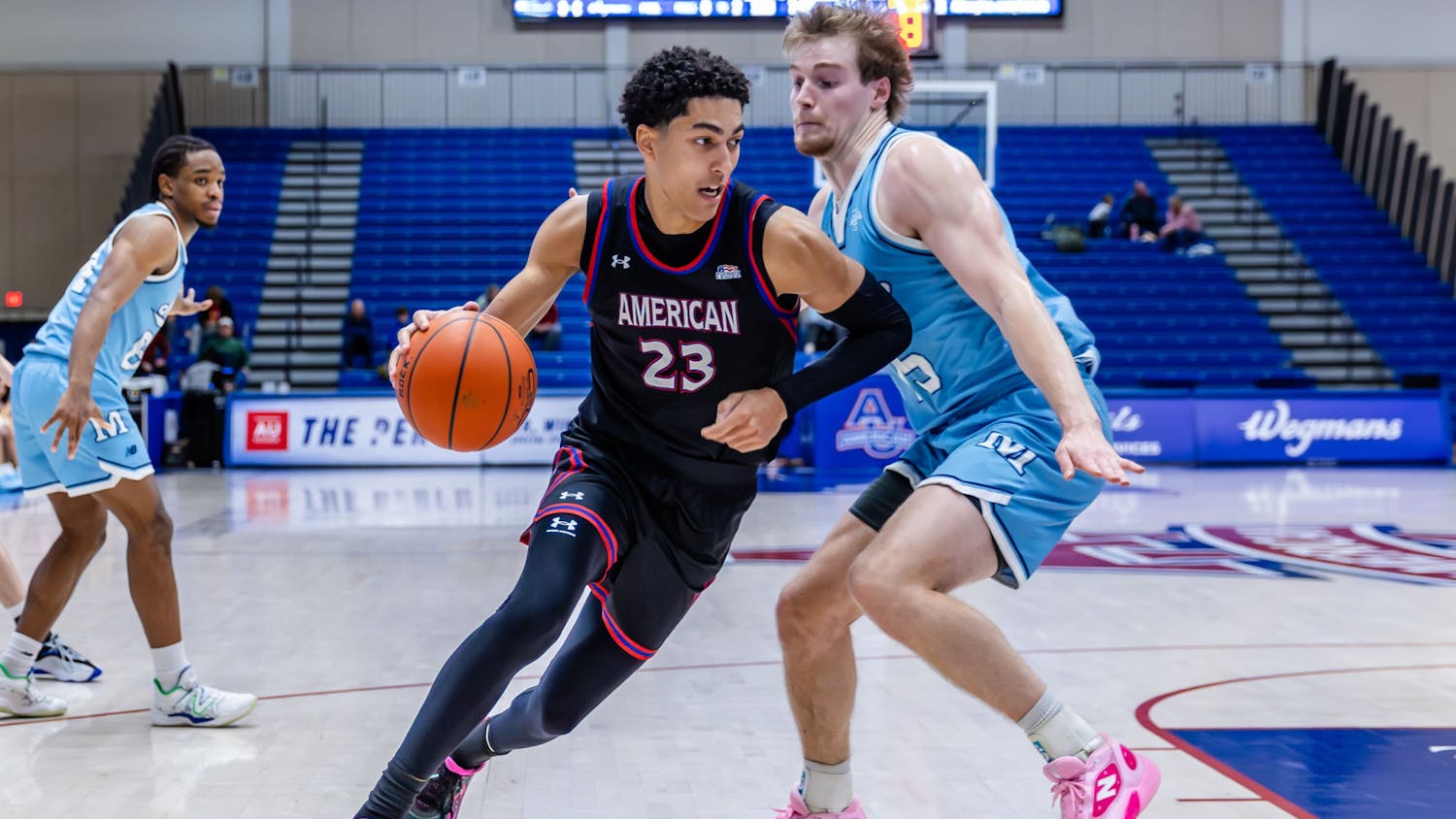Spring break. For every student, it is different.
Some will venture to beach resorts in Florida, Mexico or the Caribbean, tanning all day and partying all night.
Others will journey to visit family, friends and scenery that they miss dearly because they haven't seen them in a couple months.
Still other students will leave only the classroom. The real, physical work they do on the course, court, field and track will continue and even intensify, with no classes standing in the way of workouts, practices and games.
No one wants to live spring break as a boot camp, and most of us wouldn't make it out alive. But college athletes all over, including those at AU, endure the torture, not just for one spring break, but for all four during their college careers.
The AU Athletics Department had its reasons for cutting tennis and golf. In its initial statement, the department cited a desire "to better focus its resources on a smaller number of teams and create greater competitive potential." Later, Athletic Director Joni Comstock told The Eagle that the athletics department's deficit was among the biggest reasons for the decision.
If he wanted to, Joe Backhand could retire from college tennis to go wild in Cancun with some alluring coeds. Suzy Groundball could take an early-March vacation from the lacrosse team to see mom, dad and her devoted boyfriend at home, and never get asked back to practice again. Don't get started with David Driver, Lisa Layup, Niel Nelson or Steve Steeplechase.
Still, they stay. They bitch, moan and maybe even threaten to quit while in front of other athletes in the spirit of the fraternity-through-suffering that is so often the content of locker room talk. But they stay because the sport, the team, the chance to play and the effort invested all mean too much to drop for the most fun in their entire lives.
However, this spring break might be too much for those on the Golf and Tennis teams, who last week learned the plug would soon be pulled on their AU athletic careers.
Spring break is almost always a time when athletes do intense training on their bodies, hoping to reap the rewards not only at the end of the season, but even further down the road. This year, while running sprints or pumping iron, these athletes won't be training for the same future.
Some will be training for unvisited destinations, where strange, unrecognizable teammates await them, and where friends are names on an AIM buddy list. Others will train for May's last hurrah, knowing that after this spring, they'll prematurely drop the racket or the clubs and try to get on with life minus a loved one.
Some will have no idea what they are training for.
We don't know a lot about how, why and when the decision to dismiss 30 athletes was made. Time will elucidate some of those unknowns, and more time will show whether the reasoning turned out to be correct, from a logistical standpoint.
After this season, none of this will matter to those who will either be ordinary students with an unscratchable itch, or someone's Nebraska Avenue memory.
I'm not taking a stand per se. I don't think anyone liked what happened. And really, despite some well-meaning but na?ve protests from the student body, the third day has already passed uneventfully, with weeklong vacations soon to follow.
I'm not taking a stand because, well, there's nothing you can say. That may be why Comstock was so curt to athletes in her announcements, according to athletes' accounts. She started her career as a coach of women's volleyball and men's tennis. When she imagined herself on the other end of the table, she knew everything she said would be the wrong thing.
Still, as could be predicted, there are some who want vengeance, others who want to deny what is happening, and others still who think it is less important than recent tuition raises that effect the entire student body.
But it is a death. It is the most important of all things. It is shocking. It should, and it will, lead some of us to abandon our plans, to sit and to think about what is really important.




